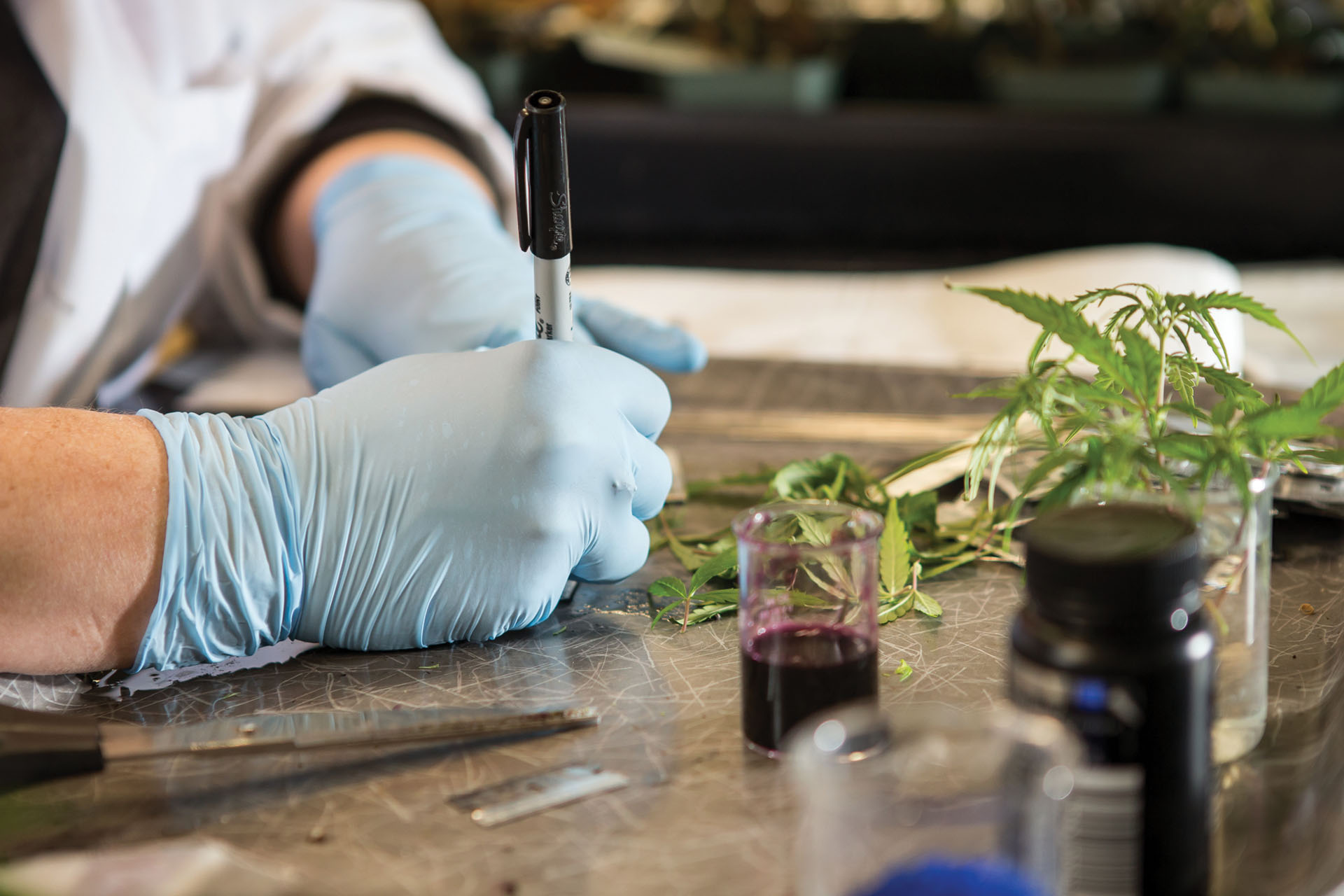The claims about what CBD, or cannabidiol, can do or cannot do to improve general health have spawned much misinformation.
“A lot of the information that users share is not scientifically proven. People talk about their anecdotal responses with the use of it and, unfortunately, a lot of this content is getting people to try things and pay for things that we have zero amount of research behind,” said Laura Stewart, Ph.D., a professor in the Department of Kinesiology, Nutrition and Dietetics, at UNC.
Stewart has been exploring the relationship between CBD and immune function. CBD is the second most studied ingredient in cannabis after tetrahydrocannabinol (THC). Stewart has found a big difference between what the public understands about CBD, and what science has proven.
A 2018 report from the World Health Organization revealed that there are numerous CBD products being manufactured and distributed without regulatory oversight and often with unverified contents.
With two decades of experience investigating the impact of exercise and botanicals on the immune system, Stewart began to examine the impact of both cannabis and CBD on the immune system.
Her first studies conducted between 2016 and 2019 examined how cannabis impacted the immune system for users and non-users, specifically as it relates to exercise performance.
“We surveyed people who are physically active and then we moved more into some cross-sectional studies that explored the potential differences between cannabis users and non-users when it came to their health and fitness,” said Stewart. “In those projects, we looked at males and females separately and evaluated basic health measures like blood pressure, heart rate and body composition.”
In general, Stewart did not find many differences between the cannabis and the non-cannabis users in both young males and females except for power tests. Power tests consist of going as fast as possible on a lab bike for 30 seconds. Stewart’s findings indicated that some cannabis users couldn’t maintain as much power as non-users. In other words, the use of cannabis adversely affected power. Since the population surveyed was small, Stewart said the results weren’t statistically significant, but it was an interesting factor to be considered by coaches, athletes and the general population.
“The next study, which started in 2021, involved a clinical trial which involved daily CBD consumption for eight weeks. We saw some potential for natural killer cells, which are part of the immune system. We saw that they might be potentially enhanced in their ability to kill cancer cells,” said Stewart. “We also found some interesting differences between groups in their ability to feel awake after sleeping.”
In her most recent study, Stewart examined the potential effect of CBD on healthy people after she was contacted by a global beverage company to evaluate the potential impacts of regular CBD consumption on general health.
“The brand had the intention to launch a drink with some CBD, so they contacted us to conduct a clinical trial before moving forward with it,” said Stewart. “They wanted to evaluate whether CBD had any effect on aspects of physical health, mental health, cognitive and focus ability.”
Stewart’s research found that the daily use of CBD for eight weeks in healthy individuals did not affect any of the physical and mental health indicators she was measuring.
Nine years of work not only resulted in new findings from each study, but also helped Stewart build more internal and external partnerships. With support and leadership of College of Natural and Health Sciences (NHS) Dean Kammel Haddad, UNC established a brand-new Complementary Health and Integrative Physiology Center (CHIPC) on campus last year. This center will help to further research on cannabis and other natural substances and their impact on health to strengthen collaborations between academia and private companies. A future study from the center involves partnering with a pharmaceutical-grade CBD company to evaluate the impact of this substance on veterans.
“CHIPC epitomizes two of our college’s priorities: Innovation in the science of health care; and connecting with our regional STEM partners,” said Haddad. “I am thrilled that the launch of NHS’s newest center has already delivered on these two priorities.”
Stewart is also excited about furthering research on Cannabis.
“Cannabis is a very interesting plant, and we are still finding a lot more about its potential to impact mental and physical health. I am very excited to share this news with the general public.”


